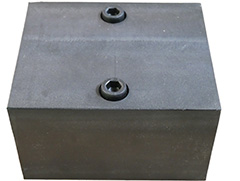How do temperature and time affect the quality of casting polyurethane prepolymers?
 The reaction temperature and time have a significant
effect on the rate of prepolymer formation and the chemical structure of the
prepolymer. When there is no catalytic reaction, carbamate is mainly formed
below 100°C, and urea is also formed when water is present; above 100°C, biuret
and allophanate are also formed, resulting in branching and crosslinking. In
practice, a lower temperature can be used to prepare a prepolymer with lower
viscosity, excellent performance and final product performance.
The reaction temperature and time have a significant
effect on the rate of prepolymer formation and the chemical structure of the
prepolymer. When there is no catalytic reaction, carbamate is mainly formed
below 100°C, and urea is also formed when water is present; above 100°C, biuret
and allophanate are also formed, resulting in branching and crosslinking. In
practice, a lower temperature can be used to prepare a prepolymer with lower
viscosity, excellent performance and final product performance.
Theoretically, the initial NCO% of the system=12.5. With
the extension of the reaction time, the NCO% finally decreased to about 6.23%
of the calculated value. When 2,4-TDI is used to synthesize a prepolymer, the
reaction temperature has a greater impact on the structure of the prepolymer
and the properties of the elastomer. This is because under the influence of
steric hindrance, the activity of the two NCO groups in the ortho-para position
of 2,4-TDI differs greatly at lower temperatures. As the temperature rises,
this difference gradually decreases, resulting in The irregularity of the
prepolymer structure and the increase of free TDI monomer content.










